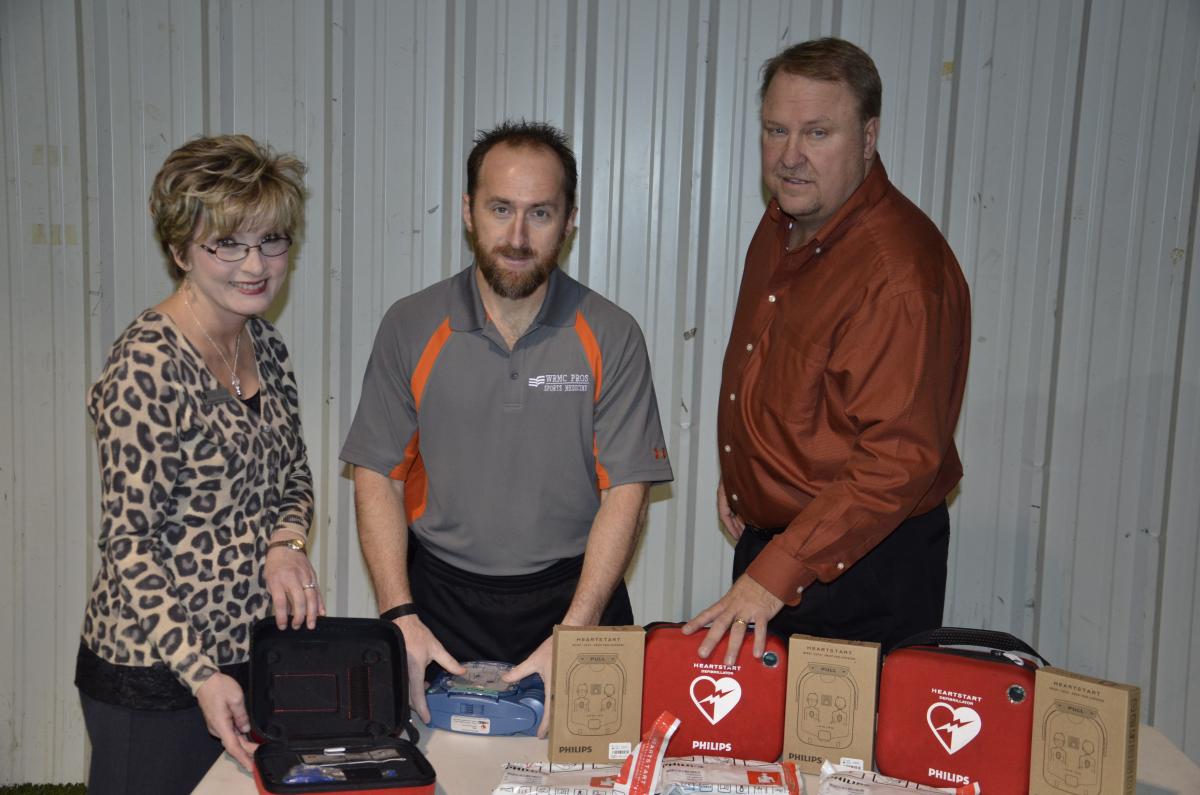
It’s a story you’ve heard before – a student collapses on the football field or during a basketball game. Most of the time the outcome depends on how quickly CPR is started and whether or not AED’s are used. In her ongoing series ‘Hope and Healing: Inside Arkansas Children’s Hospital,’ Alyson Courtney takes us to Batesville where the entire high school knows how important every second is when an athlete goes down.
He was number 42 – a linebacker for the pioneers.
Max Rucker’s mother, Sonya, explained, “Loved football – that’s what he would live or die for. I mean he went to school so he could play football.”
In November of 2014 Sonya almost lost her son, Max doing what he loved.
Batesville athletic trainer, Keith Shireman, described the day Max collapsed at practice. “Unresponsive, labored breathing I knew we had to get his helmet and shoulder pads off and the back of my mind I was thinking we have to start cpr quickly and the same time when you’re thinking this he stopped breathing.”
Shireman knew Max was going into cardiac arrest. “I didn’t want him to be a statistic I wanted to continue CPR until somebody told me to stop. I wasn’t going to take no for an answer.”
While he was doing chest compressions, the football team watched, emergency crews arrived, Max was shocked twice with an AED, rushed to White River Medical and then on to Arkansas Children’s Hospital, where he stayed in a medically induced coma for four days.
Sonya remembered, “His eyes are closed and I mean scary – very scary.”
His future was unknown.
“Every second that CPR is not initiated there is a risk for a bad neurological outcome in these children,” said ACH Pediatric Cardiologist Dr. Tamara Thomas. Thomas went on to say Max survived and had no brain damage because of the quick reaction of his coaches and athletic trainer.
Max agreed, “Very fortunate – I’m glad we had the coaching staff there that dayKeith because without them I wouldn’t be here.”
Shireman said, “When I saw Max at Childrens the first thing I went to make sure he was okay to hug him and we both started crying because I was just glad to see him, glad to see he was alive for us.”
The condition that Max was diagnosed with is so rare that most high school athletic trainers will never see it in their entire career but just eight months after Max collapsed on the field another student athlete collapsed in the gymnasium.
Robyn Sweet remembered, “Shock – you know it took me just standing realizing they were performing CPR.” Sweet was called to the school and watched as her daughter, Reagan, lay lifeless during a cheer practice – her story much like Max’s. “So Coach Kim was doing CPR and the paramedics – I did not know this then but she had already been shocked once.”
Reagan was also taken to White River and then Children’s and several days later, surrounded by family and friends, she opened her eyes. Reagan said, “With the hospital being so close and the ambulance getting here so fast and her doing CPR it saved my life.”
Dr. Thomas explained, “And we were lucky with these two cases that they woke up and they were themselves.” She says these two friends survived because their school was prepared. Both have a cadiomyopathy requiring an implanted defibrillator, daily medication and limited sports activity. Max explained, “Still on the field but now I do sideline reporting for the football team with a radio station here in Batesville.” He had to give up playing football. Reagan is still cheering but doctors require she take breaks more often. Both agree the blessing is that they have each other. Dr. Thomas said, “It changes your life going through something like that and for them to have been friends I think they can help support each other.”
Life is forever different for these two. Sonya said, “I told him you’re blessed. God kept you here for a reason. There’s something he wants you to do.” It is also forever different for this school. The staff here knowing for any of their students— everything can change in heartbeat.
In 2009 the Antony Hobbs III Act was passed that requires AED’s be placed in every school in the state. It was named after a North Little Rock High School basketball player who died after collapsing during a basketball game. Batesville has gone a step further and is now providing free EKG testing for all of its athletes hoping to catch undiagnosed heart disease in students before it leads to cardiac arrest.